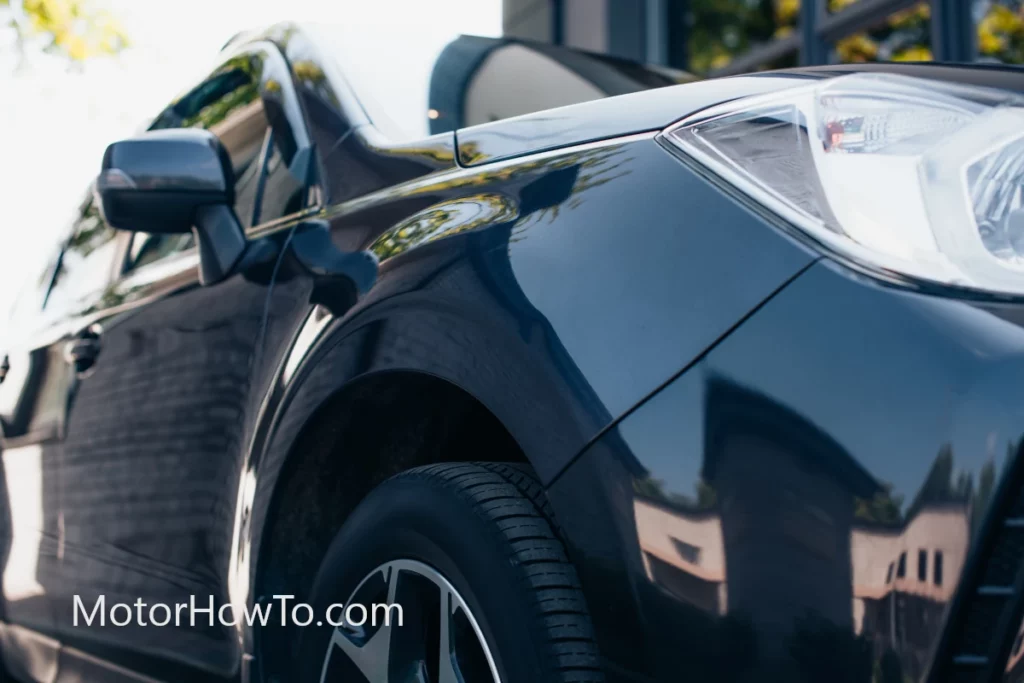Electric cars have been gaining popularity as more people become environmentally conscious and seek out alternative modes of transportation.
They offer a cleaner and quieter driving experience compared to traditional gasoline-powered cars.
However, some electric car owners have noticed an unusual sound coming from their vehicle even when it’s turned off – a fan noise.
Electric cars require fans that produce noise even when the car is turned off to prevent overheating and maintain performance. These fans are responsible for cooling the car’s battery and other components.

This fan noise has become a topic of curiosity among electric car owners and enthusiasts.
Many wonder why their car needs a fan noise when it’s not running. We’ll look at it, explore its reasons, and help you better understand this fascinating aspect of electric car technology.
Related:
- What If The EV Has The A/C On? (How Long Will It Last)
- Why Don’t Electric Cars Have Spare Tires? (Answered)
- Where Is The Engine Located On A Tesla? (Explained)
Why Do Electric Cars Make A Whirring Noise?
Electric cars are known for their silent operation due to their lack of an internal combustion engine.
However, they still produce some noise, particularly a distinctive whirring sound that is often heard when the car accelerates or decelerates.
The electric motor primarily causes the whirring noise in electric cars.
Unlike traditional engines that rely on combustion, electric motors produce power using magnetic fields. When the motor rotates, a magnetic field interacts with the magnets in its stationary housing, resulting in a whirring sound.
The sound is most noticeable at low speeds because the motor works harder to produce more torque.
Additionally, some electric cars have artificial sound systems installed to make them more audible to pedestrians and cyclists, particularly at low speeds where they may be harder to hear.
Why Do Electric Cars Make Humming Noise
One of the most common sounds in electric cars is a humming noise, which you can hear at low speeds. The tires and road surface primarily cause the humming noise in electric cars.
Electric cars tend to have smoother and quieter motors compared to traditional gasoline engines, which can make tire noise more noticeable.
Additionally, electric cars are heavier due to their battery packs, which can cause the tires to make more noise on the road surface.
Some electric cars have also been designed with special low-rolling-resistance tires that are optimized for efficiency but can produce more noise.
However, some electric cars have sound systems installed that emit artificial sounds to alert pedestrians of their presence, particularly at low speeds. These sounds may also contribute to the humming noise.
Why Do Electric Cars Make Noise In Reverse
Electric cars make noise in reverse as a safety measure to alert pedestrians, cyclists, and other drivers that the car is reversing.
This noise is an acoustic vehicle alerting system mandated by the National Highway Traffic Safety Administration (NHTSA) for all-electric vehicles.
The noise is similar to the sound of a traditional internal combustion engine and is designed to notify pedestrians and other drivers that the car is in reverse.
The NHTSA requires electric vehicles to emit noise at all speeds below 19 mph when in reverse and at higher speeds when reversing at less than six mph.
The NHTSA’s acoustic vehicle alerting system is designed to improve pedestrian safety and help prevent automobile accidents. The sound is generated from a speaker in the car’s rear and must be easily audible from up to 50 feet away.
The sound must also be distinct from the sound generated by an internal combustion engine and any other sounds that could be mistaken for an internal combustion engine.
Research has shown that electric vehicles are significantly quieter than gasoline-powered cars, making them difficult to hear when they are in reverse, which can lead to accidents.
The acoustic vehicle alerting system helps mitigate this risk by making electric vehicles more easily audible by pedestrians and other drivers when in reverse.
Do Electric Cars Make Noise On Purpose?
Electric cars are known for their quiet operation, which can be a safety concern for pedestrians and cyclists who may not hear them approaching.
As a result, some electric cars have been designed to make noise on purpose, particularly at low speeds, to alert others of their presence.
In the United States of America, the National Highway Traffic Safety Administration (NHTSA) has published a requirement that all-electric cars emit a warning sound at speeds below 18.6 miles per hour (30 kilometers per hour) starting in 2020.
This regulation, known as the Pedestrian Safety Enhancement Act, is intended to make electric cars more audible to pedestrians, especially visually impaired ones.
Electric car manufacturers have responded to this regulation by designing sound systems that emit artificial sounds to alert pedestrians of their presence.
The sounds are typically a combination of tones and frequencies more noticeable than the sound of the car’s tires on the road.
Some manufacturers have even gone so far as to develop unique sound signatures for their electric cars to help distinguish them from other vehicles.
However, at higher speeds, the sound of the wind and the car’s tires is usually sufficient to alert pedestrians to the car’s presence, so no additional sound is needed.
Do Electric Cars Have Fake Engine Noise?
Some electric cars have fake engine noise, also known as Active Sound Design or Active Sound Enhancement, that is designed to mimic the sound of a traditional gasoline engine.
This is primarily done to provide drivers with a more familiar driving experience and to make the car feel more powerful and responsive.
The fake engine noise is typically generated by a sound system connected to the car’s speakers.
The sound system uses a combination of recorded engine noises and digital signal processing to create a convincing engine sound synced with the car’s acceleration and deceleration.
You can adjust the sound to suit the driver’s preferences, and some systems even allow drivers to choose between different engine sounds.
However, not all electric cars have fake engine noise, and some manufacturers argue that it is unnecessary and goes against the silent operation that is a hallmark of electric cars.
Also, some electric car enthusiasts argue that the fake engine noise is a gimmick and that electric cars should be celebrated for their quiet and efficient operation.
Can You Turn Off Electric Car Noise?
The ability to turn off the noise generated by electric cars varies depending on the specific vehicle and the type of noise in question.
In the case of the noise that is generated to alert pedestrians, this sound is required by law and cannot be turned off by the driver. However, some electric cars may allow the driver to adjust the sound volume or choose different sound options.
In the case of fake engine noise, some electric cars may allow the driver to turn off the sound or adjust the volume. However, this feature is not available on all-electric cars, and the process for turning off the sound can vary between models.
Some cars may require the driver to go into the settings menu of the infotainment system, while others may have a physical button or switch to turn off the sound.
Additionally, some manufacturers may not allow the driver to turn off the fake engine noise, as it is integrated into the car’s driving experience.
Conclusion
Electric cars are becoming increasingly popular as more people become environmentally conscious and seek out alternative modes of transportation. They offer a cleaner and quieter driving experience compared to traditional gasoline-powered cars. However, electric cars can still produce some noise.
One of the most common sounds heard in electric cars is a humming noise primarily caused by the tires and road surface. Additionally, some electric cars have artificial sound systems installed to make them more audible to pedestrians and cyclists, particularly at low speeds where they may be harder to hear.
Electric cars also make noise in reverse as a safety measure to alert pedestrians, cyclists, and other drivers that the car is reversing.
The NHTSA requires electric vehicles to emit noise at all speeds below 19 mph when in reverse and at higher speeds when reversing at less than 6 mph. Some electric cars have been designed to intentionally make noise, particularly at low speeds, to alert others of their presence.
Electric car manufacturers have responded to this regulation by designing sound systems that emit artificial sounds to alert pedestrians of their presence.
However, at higher speeds, the sound of the wind and the car’s tires is usually sufficient to alert pedestrians to the car’s presence, so no additional sound is needed.
Sources
Do electric cars make any noise? –
What Noise Does the Electric Car Make?
Why Electric Cars Are Getting Louder
These electric cars make a humming noise to help pedestrians
Electric Cars & Noise: 8 Common Questions
Why Do Electric Cars Make Noise In Reverse?
Electric vehicle warning sounds
Dodge hopes fake engine noises can trick traditionalists into buying an EV



